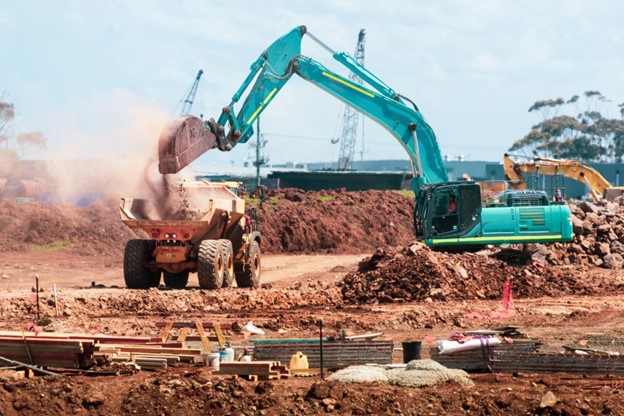A key focus of my blog is Technology. Like the other driving innovations of our digital age, the IOT is going to impact most facets of life, in this case the construction industry. If you’re in this industry, it behooves you to get some understanding of how it will impact your operations. The following contributed post is entitled, Smart Ways IOT Can Enhance The Construction Industry.
* * *
Construction is one of the oldest and most important industries in the world. It is responsible for creating the infrastructure that we all rely on, from homes and office buildings to bridges and roads. In recent years, the construction industry has begun to embrace new technologies, including drones, 3D printing, and virtual reality. And now, the construction industry is on the verge of another major technology revolution: the Internet of Things (IoT).

The IoT is a network of physical devices, vehicles, home appliances, and other items that are embedded with electronics, software, sensors, and connectivity tools that enable these objects to connect and exchange data. The IoT has the potential to transform every aspect of the construction industry, from project management and safety to equipment maintenance and resource optimization.
Here are six ways that the IoT can enhance the construction industry:
Project management
The IoT can be used to collect data about every aspect of a construction project, from weather conditions and traffic patterns to material shortages and equipment malfunctions. This data can then be used to improve the overall management of the project, ensuring that it is completed on time and within budget.
Safety
Construction sites are notoriously dangerous places to work. The IoT can help to make construction sites safer by providing real-time data about potential hazards, such as loose scaffolding or exposed electrical wiring. This data can then be used to direct workers away from potential danger zones and ensure that safety protocols are being followed.
Equipment maintenance
Construction equipment is expensive, and downtime can be costly. The IoT can help construction companies to keep their equipment in good working order by providing real-time data about the condition of each piece of machinery. This data can be used to schedule preventive maintenance and avoid unplanned repairs. For example, you can order an excavator bucket online by clicking on this link: labadiengineering.com.au/products/labadi-20-tonne-gp-bucket-48.
Resource optimization
The construction industry is resource-intensive, and construction projects often generate a lot of waste. The IoT can help construction companies to optimize their use of resources by collecting data about material usage and waste production. This data can then be used to reduce the number of resources that are used during a project and minimize the amount of waste that is generated.
Energy efficiency
Construction projects can have a significant impact on the environment, both during and after the project is completed. The IoT can help construction companies to reduce their environmental impact by collecting data about energy usage and emissions. This data can then be used to make construction projects more energy-efficient and reduce the carbon footprint of the construction industry.
Cost savings
The construction industry is a notoriously competitive business, and construction companies are always looking for ways to save money. The IoT can help construction companies to save money by collecting data about material costs, labor costs, and equipment costs. This data can then be used to negotiate better prices from suppliers and contractors, resulting in significant cost savings for construction companies.
In Closing
The IoT is a transformative technology that has the potential to revolutionize the construction industry. Construction companies that embrace the IoT will be able to improve their operations, reduce their costs, and improve their customer satisfaction. The IoT is the future of the construction industry, and those who embrace it will be able to reap the benefits.
